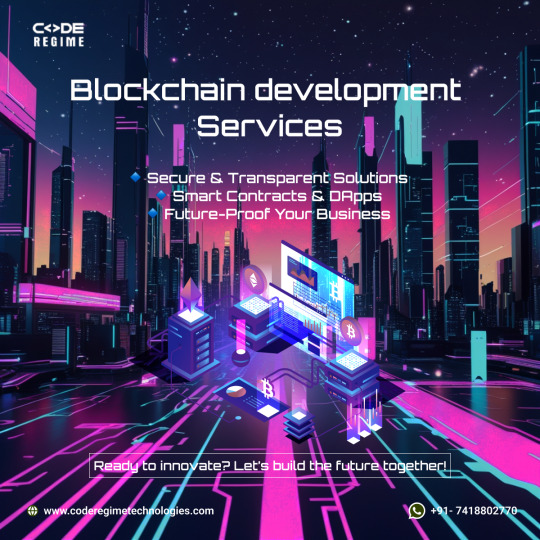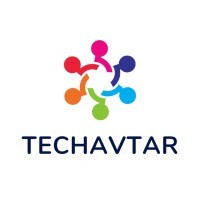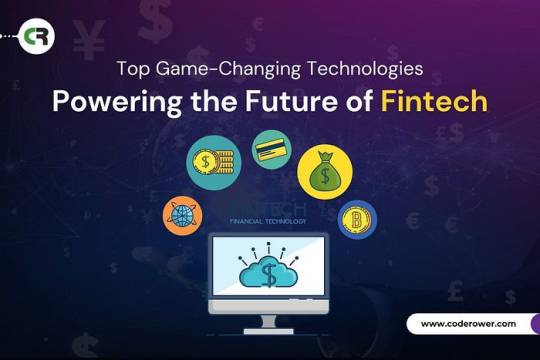#Custom Blockchain Development Services Company
Explore tagged Tumblr posts
Text
Get digital solutions at Belthainfotech, including web/app development, IT services, Web3, gaming, and blockchain.
Discover the strength of Belthainfotech's diverse virtual offerings designed to take your on line presence to new heights. Our knowledge spans throughout website development, IT answers, app development, and current Web3 offerings, making sure a seamless virtual revel in in your business. Dive into the arena of immersive gaming with our game improvement services, explore the capacity of blockchain generation, and unleash creativity with our captivating photo designing solutions. Elevate your logo with Belthainfotech and free up infinite possibilities inside the virtual realm.
#Best Digital Marketing Service Providers#Website Developer Company in Delhi NCR#IT Solution Company in Delhi NCR#Best Mobile App Development Companies in 2024#Unlocking the Power of Web3 Services#Most Trusted Mobile Game Development Company In India#Custom Blockchain Development Services Company
0 notes
Text
Secure Your Digital Assets with Reliable WordPress Security Services
A secure website is the cornerstone of a successful online presence. Atcuality provides unparalleled WordPress security services to shield your site from cybercriminals and data breaches. Our comprehensive approach includes regular vulnerability scans, plugin and theme updates, and advanced encryption protocols to secure your sensitive information. Whether it's mitigating DDoS attacks or strengthening login security, we employ the latest tools and technologies to keep your WordPress site secure. Trust Atcuality to deliver peace of mind with a secure and seamless online experience.
#ai powered application#ai applications#amazon web services#mobile application development#app development company#mobile app development company#mobile app development#mobile app developers#app design and development#app development#web app development#augmented reality#metaverse#virtual reality#azure cloud services#custom app development#blockchain#cash collection application#cloud security services#cloud security solutions#cloud computing#cloud#custom wordpress development services#wordpress development#web development#website design#web developers#web design#ecommerce website development#digital marketing
1 note
·
View note
Text
Custom Blockchain Development Services in the USA

Want to leverage blockchain for your business? Deftsoft specializes in custom blockchain solutions designed to drive innovation and growth. Contact us today to see how we can help you achieve your goals. # #Deftsoft
#blockchain development company#blockchain#blockchain development#blockchain development services#blockchain technology#Custom Blockchain Development
1 note
·
View note
Text

Ever wondered how decentralized power can secure your business? 🤔 Blockchain isn’t just about crypto—it’s about trust, transparency, and efficiency! From smart contracts to secure transactions, our blockchain development services bring the next-gen technology to your fingertips. 💡 Let’s build something revolutionary together!
#bitcoin#custom mobile app development company#software development#branding#blockchain development#blockchain technology#cryptoinvesting#cryptotrends#fintech#daaps#xrp news#xrpcommunity#services#mobile app development
0 notes
Text
Revolutionize Your Business with top rated Blockchain Development Company
Antier stands out as a leading blockchain development company, offering expert guidance and skilled developers to drive your project's success. With a history of delivering successful blockchain solutions, we focus on building secure, transparent, and efficient foundations to help your business thrive.

#blockchain development services#blockchain#custom blockchain development company#technology#cryptocurrency#blockchain software development services#blockchain development solutions#blockchain development company
0 notes
Text
As we step deeper into the digital age, the metaverse is transforming how we interact, learn, and conduct business. This virtual universe, characterized by immersive experiences and interactivity, is rapidly becoming a cornerstone of innovation. In India, one company is at the forefront of this evolution: Simulanis Solutions. As a leading Metaverse Development Agency, Simulanis is committed to delivering cutting-edge solutions that empower businesses and engage users like never before.
#Metaverse Development Company#Metaverse Solutions Provider#Metaverse Platform Development#Custom Metaverse Development#Metaverse Game Development Agency#Metaverse Experience Design#Metaverse App Development#3D Metaverse Development#Metaverse VR/AR Integration#Metaverse Virtual Worlds#Metaverse Real Estate Development#Metaverse Consulting Services#Metaverse Integration Agency#NFT and Metaverse Development#Blockchain Metaverse Solutions#Interactive Metaverse Experiences#Metaverse for Business Solutions#Metaverse Marketing Agency#Metaverse Customization Services#Metaverse Ecosystem Development
0 notes
Text
How Do Smart Contracts Work in Blockchain Applications?
Smart contracts are revolutionizing the way businesses operate by enabling automated, secure, and transparent agreements on blockchain networks. But how do they work, and why are they so transformative? This article delves into the mechanics, benefits, and real-world applications of smart contracts within blockchain technology. Introduction to Smart Contracts Imagine a world where agreements…
#blockchain development company#blockchain development services#Blockchain Solutions#Blockchain Technology#Custom Blockchain Solutions#Enterprise Blockchain Development
0 notes
Text
Scale Smarter with AI-Powered Telegram Bots - Atcuality
Manual tasks and delayed responses are a thing of the past. At Atcuality, we help businesses streamline operations and engage users in real time with bots that do more than just send messages—they execute strategies. Midway through our digital automation portfolio, you’ll find our high-performance Telegram Bot Creation service, designed for scale and custom functionality. Whether you need a bot to process transactions, deliver personalized content, or handle ticketing and notifications, we’ll build a solution that integrates effortlessly with your systems. Our bots work around the clock, reducing costs while improving speed, accuracy, and user satisfaction. When it comes to intelligent automation, Atcuality delivers performance you can message about.
#cash collection application#digital marketing#blockchain#web app development#web design#virtual reality#amazon web services#augmented reality#ai applications#web developers#telegram#telegram bot#telegram channel#applications#app development#mobile application development#mobile app development#custom app development#app development company#app developers#app design#application#software#app developing company#ai powered application#app#information technology#application modernization#application development#application process
0 notes
Text
Business with Enterprise Blockchain Development Services in the USA

Enterprise blockchain development is revolutionizing how businesses operate by offering tailored solutions that enhance efficiency, security, and transparency. Unlike public blockchains, enterprise blockchains are private and permissioned, enabling organizations to maintain full control over governance and access. This custom enterprise blockchain development approach ensures solutions are fine-tuned to address unique business challenges across industries like healthcare, finance, and supply chain management.
Recent Trends in Enterprise Blockchain Development
1. Sustained Growth in Adoption
The demand for enterprise blockchain development services has surged. A recent survey shows 37% of organizations have integrated blockchain solutions, and 26% are in testing phases. Companies like Walmart and IBM are leveraging these systems to improve supply chain traceability and fraud prevention.
2. Enhanced Interoperability
Interoperability is transforming how businesses use blockchain. Platforms like Cosmos and Polkadot enable seamless communication between networks, breaking silos and promoting an interconnected ecosystem. This capability is driving businesses to adopt custom enterprise blockchain development for comprehensive integration.
3. Blockchain-as-a-Service (BaaS)
Tech giants, including IBM and Microsoft, are leading the BaaS revolution. These platforms allow businesses to deploy blockchain applications without deep technical expertise, making enterprise blockchain development more accessible to small and medium-sized enterprises.
4. Privacy-Enhancing Technologies
With rising data privacy concerns, zero-knowledge proofs and confidential transactions are becoming industry standards. These technologies provide secure transaction validation while safeguarding sensitive data, boosting confidence in blockchain's applicability for compliance-heavy sectors.
5. Sustainability Initiatives
Enterprises are adopting eco-friendly solutions by utilizing energy-efficient mechanisms like proof-of-stake. This approach aligns blockchain development with global sustainability goals, making it an ideal choice for companies prioritizing green technology.
Key Expectations for 2025
As businesses embrace enterprise blockchain development services, here’s what lies ahead:
● Broader Industry Adoption: Sectors like manufacturing, logistics, and healthcare will increasingly rely on blockchain to enhance transparency and productivity. ● Smarter Smart Contracts: Automation of complex processes, such as compliance checks and payments, will reduce errors and operational costs.
● Clearer Regulations: Governments are moving towards robust regulatory frameworks, facilitating broader adoption by removing legal uncertainties.
● Decentralized Autonomous Organizations (DAOs): DAOs will emerge as governance models for enterprises, enabling stakeholder-driven decisions through smart contracts. ● Market Expansion: Interoperable blockchain systems will create new opportunities in financial services, particularly in integrating decentralized finance (DeFi) with AI.
Why Choose Performix for Enterprise Blockchain Development?
Performix, a leading enterprise blockchain development company in the USA, offers innovative and reliable solutions tailored to your business needs. From conceptualizing custom solutions to implementing advanced technologies, Performix ensures your blockchain journey is seamless and impactful. Ready to future-proof your business? Explore Performix’s expertise in enterprise blockchain development services and drive transformative growth in 2025 and beyond. Visit Performix to learn more.
#enterprise blockchain development services#enterprise blockchain development company#custom enterprise blockchain development#enterprise blockchain development
0 notes
Text

#Top Technology Services Company in India#Generative AI Development Company#AI Calling Software#AI Software Development Company#Best Chatbot Service Company#AI Calling Software Development#AI Automation Software#Best AI Chat Bot Development Company#AI Software Dev Company#Top Web Development Company in India#Top Software Services Company in India#Best Product Design Company in World#Best Cloud and Devops Company#Best Analytic Solutions Company#Best Blockchain Development Company in India#Best Tech Blogs in 2024#Creating an AI-Based Product#Custom Software Development for Healthcare#NexaCalling Best AI Calling Bot#Best ERP Management System#WhatsApp Bulk Sender#Neighborhue Frontend Vercel
0 notes
Text

mobile application service provider
#mobile application service provider#mobile application development services#native app development services#hybrid app development services#android app development#ios mobile app development#cross platform mobile development#mobile game development company#custom mobile apps#blockchain mobile app development#app development#mobile app development#app development company#mobile app development company#app development software#flutter app development#android development#ios app development#best app developers#create android app#web app development#mobile app development software#mobile development#android app development software#android application development#cross platform app development#best app development companies#best app development software#app development agency#make android app
0 notes
Text
Future-Proof Blockchain App Development Company
The top blockchain development company prioritizes quality and innovation and offers exceptional blockchain solutions. Our skilled staff, renowned for their reliability and expertise, creates cutting-edge programs that boost business success. Join up with us to take advantage of the latest developments in the industry and efficiently and easily do your digital currency goals.

#blockchain technology#blockchain development company#blockchain development services#Custom blockchain development company
0 notes
Text
Top Game-Changing Technologies Powering the Future of Fintech

The financial technology (fintech) sector is rapidly transforming, driven by innovative technologies that streamline processes, enhance customer experiences, and create new opportunities. These advancements, from artificial intelligence to blockchain, are revolutionizing financial services, empowering businesses to offer secure, efficient, and personalized solutions. CodeRower, with its forward-thinking approach and deep expertise, is at the forefront of this transformation, enabling clients to leverage the latest technologies effectively. Let’s explore the top technologies propelling the fintech revolution and shaping the future of finance.
1. Artificial Intelligence (AI) and Machine Learning (ML)
AI and ML have become fundamental in fintech, especially in decision-making and predictive analysis. These technologies help fintech companies process massive datasets, enabling them to provide customized services, detect fraud, and make data-driven decisions.
Customer Personalization: AI and ML help fintech firms tailor recommendations for products, loans, and investment portfolios by analyzing customer behavior and preferences.
Fraud Detection and Prevention: Machine learning algorithms monitor transaction patterns and detect anomalies in real-time, helping prevent fraud and unauthorized access.
Credit Scoring: Traditional credit scores have limitations, especially for people with minimal credit history. AI-driven credit scoring models consider alternative data, providing more accurate assessments for creditworthiness.
Example: Companies like PayPal and Square leverage AI to enhance user experience and improve security, maintaining a balance between frictionless access and robust protection.
CodeRower integrates AI-driven solutions to provide personalized customer experiences, from advanced credit scoring models to real-time fraud detection. By leveraging these tools, CodeRower helps financial organizations predict trends, identify risks, and improve customer engagement.
2. Blockchain Technology
Blockchain, the technology underlying cryptocurrencies, offers a decentralized approach to transactions, bringing security and transparency. It reduces the need for intermediaries and minimizes transaction costs, making it ideal for financial applications.
Cryptocurrencies and Digital Payments: Blockchain allows for fast, secure, and borderless payments. Cryptocurrencies like Bitcoin and Ethereum have popularized the idea of digital money.
Smart Contracts: These self-executing contracts automate transactions when predefined conditions are met, reducing delays and minimizing risks associated with manual processing.
Tokenization: By converting assets into digital tokens, blockchain enables fractional ownership and faster trading, especially useful in real estate and stock markets.
Example: Ripple and Stellar are blockchain-based payment platforms that provide cross-border payment solutions, significantly lowering transaction times and fees.
CodeRower designs secure and scalable blockchain-based solutions, including digital payment systems and smart contracts, that streamline operations and enhance transparency for clients. By focusing on decentralized finance and asset tokenization, CodeRower helps businesses reduce operational costs and drive growth through trustless, secure platforms.
3. Decentralized Finance (DeFi)
Decentralized Finance, or DeFi, leverages blockchain to deliver open, permissionless financial services without traditional intermediaries like banks. By using DeFi applications, users can lend, borrow, and trade assets directly on decentralized platforms.
Peer-to-Peer Lending and Borrowing: DeFi platforms like Aave and Compound enable users to lend or borrow assets, earning interest or gaining liquidity without a middleman.
Decentralized Exchanges (DEXs): Unlike traditional exchanges, DEXs allow users to trade cryptocurrencies directly with one another, improving privacy and control over funds.
Stablecoins: DeFi has also driven the growth of stablecoins (digital assets pegged to stable assets like the U.S. dollar), which offer price stability in the volatile cryptocurrency space.
Example: Uniswap, a popular DEX, allows users to trade directly from their digital wallets, reducing reliance on centralized exchanges and increasing transaction speed.
CodeRower assists clients in building robust DeFi applications that enable peer-to-peer lending, decentralized exchanges, and digital wallet services. These solutions empower businesses to offer financial products that increase accessibility and align with the growing demand for decentralized financial options.
4. Open Banking
Open Banking mandates financial institutions to share customer data (with consent) with third-party providers, fostering competition and innovation. It aims to give customers control over their data, enabling them to access better financial products.
Enhanced Services and Product Comparison: Open banking allows users to compare financial products and services across multiple providers, leading to more informed decisions.
Personalized Financial Advice: By aggregating financial data, third-party providers can offer more tailored insights and advice.
Streamlined Payments: Open banking allows for direct bank-to-bank transfers, reducing transaction costs and improving processing times.
Example: European open banking regulations, like PSD2, have driven the growth of third-party apps such as Mint and Plaid, which provide financial tracking and planning solutions.
CodeRower develops secure APIs that facilitate seamless data sharing between banks and third-party providers, allowing clients to meet regulatory standards and build more responsive, personalized financial services. By enhancing customer experience, CodeRower’s open banking solutions increase client retention and expand market reach.
5. Robotic Process Automation (RPA)
Robotic Process Automation (RPA) automates repetitive tasks, freeing employees to focus on more strategic activities. In fintech, RPA reduces human error and speeds up processes.
Data Entry and Compliance: RPA bots streamline data entry and ensure regulatory compliance, minimizing the risk of manual mistakes.
Customer Support: Automated chatbots use RPA to answer common customer queries, reducing wait times and improving user experience.
Loan Processing: RPA accelerates loan approvals by automating document verification and other administrative tasks.
Example: Many banks employ RPA to automate Know Your Customer (KYC) and Anti-Money Laundering (AML) checks, saving time and resources while ensuring compliance.
CodeRower applies RPA technology to streamline tasks like data entry, compliance, and customer support. With these automated processes, financial institutions can achieve faster turnaround times, ensure data accuracy, and enhance compliance, all while freeing up human resources for higher-value tasks.
6. Biometric Authentication
Security is paramount in fintech, and biometric authentication provides a robust, user-friendly solution. Technologies like fingerprint, facial, and voice recognition reduce the risk of unauthorized access.
Enhanced Security: Biometrics offer a unique identifier, making it challenging for unauthorized users to access accounts.
Improved User Experience: Password-free logins enhance convenience and reduce the chances of password theft.
Adaptation for Mobile: Mobile devices support biometric authentication, making it easier for users to secure their devices and access banking apps safely.
Example: Banks and fintech apps often use fingerprint and facial recognition for mobile app logins, ensuring that only the account holder has access.
CodeRower integrates biometric authentication systems into mobile banking apps and online platforms, enhancing security and improving the user experience. With a focus on advanced authentication mechanisms, CodeRower helps clients ensure that only verified users have access to sensitive financial data.
7. 5G Connectivity
With the advent of 5G, financial services can now operate faster and more reliably, especially on mobile devices. The improved connectivity supports real-time transactions, data streaming, and advanced app features.
Faster Transactions: 5G enables instant money transfers and low-latency trading, reducing delays.
Enhanced Mobile Banking: Banks can now offer more complex functionalities on mobile apps, such as video consultations and real-time customer support.
Edge Computing: 5G, coupled with edge computing, allows data processing closer to the source, which can reduce data transfer times and improve security.
Example: China’s 5G rollout has fueled growth in mobile payment systems, allowing apps like Alipay and WeChat Pay to deliver seamless, fast user experiences.
CodeRower leverages 5G’s capabilities to create high-performance mobile applications that support instant transactions and real-time data processing. By building applications optimized for 5G, CodeRower enables financial institutions to offer seamless and responsive mobile experiences, meeting the demands of today’s tech-savvy users.
8. Quantum Computing
Quantum computing, while still in its early stages, has enormous potential in fintech. Quantum processors can solve complex calculations exponentially faster than traditional computers, making them ideal for applications requiring significant computational power.
Risk Assessment and Portfolio Optimization: Quantum computing could improve accuracy in analyzing risk and optimizing investment portfolios.
Encryption and Security: Quantum cryptography promises a higher level of security, crucial for safeguarding sensitive financial data.
Fraud Detection: Quantum algorithms can potentially detect patterns and anomalies faster, identifying fraud attempts with greater accuracy.
Example: Although still largely experimental, banks like JPMorgan and IBM are exploring quantum computing to strengthen data encryption and improve financial forecasting.
Although quantum computing is an emerging field, CodeRower is staying ahead by researching its potential applications in financial modeling and data encryption. CodeRower aims to provide clients with the latest advancements, from high-speed transaction processing to improved data protection, preparing for the future of fintech security and performance.
Conclusion
The fintech revolution, driven by AI, blockchain, DeFi, and other emerging technologies, is transforming traditional financial services into a dynamic and customer-focused ecosystem. As these technologies mature, fintech will continue to innovate, offering faster, safer, and more inclusive financial solutions that empower consumers and businesses alike. The future of fintech is bright, and as these advancements continue to unfold, financial services will become even more integral to the digital landscape.
Ready to take the next step? Contact us to see how CodeRower can help you unlock new possibilities in fintech innovation. Let’s Connect!
#fintech development company#fintech software#fintech#finance#financial#financial services#software development companies#software development#app development#web app development#web development#ios app development#blockchain development#game development#custom app development#android app development#custom software development
0 notes
Text
Factors Impacting Your Blockchain App Development Cost
Discover the major determinants that will affect the blockchain app development cost, including project complexity, choice of platform, security, and more.

#blockchain development company#blockchain software development services#blockchain development solutions#custom blockchain development company#technology#blockchain#cryptocurrency#blockchain development services
0 notes
Text
In this blog, we delve into the growing Metaverse industry in India and showcase Simulanis, a leading Metaverse development company in the country. As Metaverse startups in India continue to rise, we explore the innovative solutions, technologies, and Metaverse app development services offered by Simulanis, positioning it as one of the best Metaverse companies in India
#metaverse company in india#metaverse development company#simulanissolutions#Metaverse Solutions#Metaverse Development Services#Virtual World Development#3D Metaverse Creation#Metaverse Platform Development#Blockchain Metaverse#Custom Metaverse Design#Metaverse App Development#Virtual Reality Metaverse#NFT Integration in Metaverse#Metaverse Architecture#Metaverse Software Solutions#Metaverse Gaming Development#Metaverse for Business#Decentralized Metaverse#Cross-Platform Metaverse#Metaverse Real Estate Development#Augmented Reality Metaverse#Metaverse Ecosystem#Metaverse Experience Design
0 notes
Text

AI Healthcare App Development In Indiat IT sector and innovative capabilities, has emerged as a hub for AI healthcare app development. This article explores the top five AI healthcare app development companies in India, SigTuple: Redefining Diagnostics with AI, Niramai: Innovative Breast Cancer Screening, Tricog Health: Enhancing Cardiac Care, Qure.ai: Making Radiology More Accessible, Predible Health: Precision Oncology
#AI healthcare app development#custom healthcare app development company#healthcare app development#healthcare app development company#healthcare app development services#best healthcare app development company#blockchain healthcare app development#obile healthcare app development
0 notes